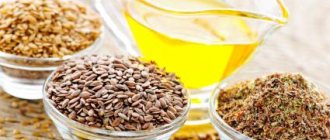Calorie content of tomato and cucumber salad with vegetable oil per 100 grams
Calorie content per 100 grams of tomato and cucumber salad with vegetable oil is 89.8 kcal. 100 g of dish contains:
- 0.9 g protein;
- 7.9 g fat;
- 4.2 g carbohydrates.
Read: Snickers is low in calories
To prepare this salad you need:
- cut 100 g cucumbers into slices;
- cut into slices and mix 100 g of tomatoes with cucumbers;
- add 30 g of onions, cut into half rings, to the tomatoes and cucumbers;
- season the salad with 20 g of vegetable oil.
Oil calorie table
This table shows the energy value of the most commonly used oils.
Calorie content of vegetable oils (per 100 g of product):
- The calorie content of corn oil is 900 kcal;
- The calorie content of olive oil is 824 kcal;
- The calorie content of sunflower oil is 900 kcal;
- The calorie content of vegetable soybean oil is 900 kcal;
- The calorie content of nut oil is 570 kcal;
- The calorie content of palm oil is 884 kcal.
The calorie content of butter (per 100 g of product) is 750 kcal;
The calorie content of ghee (per 100 g of product) is 885 kcal.
The benefits of vegetable oil
The following benefits of vegetable oil are known:
- the product is rich in lecithin, which helps prevent stress, normalizes hematopoietic processes, and strengthens the nervous system;
- fatty acids from vegetable oil are necessary to strengthen the immune system, maintain youth, and prevent gastrointestinal diseases;
- consuming oil in salads reduces the level of bad cholesterol;
- vegetable oil is indicated for the prevention of thrombophlebitis, atherosclerosis;
- the product restores the metabolism of carbohydrates and proteins in the body, helps improve concentration and memory;
- Numerous studies confirm the benefits of vegetable oil for stimulating the functions of the endocrine and genitourinary systems.
Composition, beneficial properties and restrictions on vegetable oil consumption
Before moving on to the issue of calorie content, it is worth talking about the chemical composition and beneficial properties of vegetable oil. First of all, it is worth noting that sunflower oil is one of the main suppliers of vegetable fats that are beneficial to the body; as for proteins and carbohydrates, sunflower oil does not contain them. Studies have shown that it has more beneficial properties than the popular olive and rapeseed oil, and this is due to the method of obtaining sunflower oil by pressing sunflower seeds.
There are two types of sunflower oil - refined and unrefined. Most housewives are of the opinion that refined oil is more useful, while the benefits of unrefined oil are obvious. It contains vitamin E, known as tocopherol, of which 100 grams contains approximately 60 mg. A vitamin of this group contributes to the formation of hemoglobin and protein necessary for muscle development. If you constantly use vegetable oil, you will get strong and impenetrable capillaries, and the body will not be subject to premature aging.
Despite the great benefits of unrefined oil, it should not be used for frying, since, in addition to the unpleasant burnt taste, you will get harmful carcinogens. In this case, refined oil is perfect, which, even when heated, does not pose a danger to humans. It is not recommended to consume more than three tablespoons of vegetable oil per day, and you can understand why this happens by asking how many calories are in a tablespoon of vegetable oil, but it cannot be considered a dietary product.
How many calories are in salads with vegetable oil?
Those who are losing weight are interested in how to choose a salad dressing with minimal fat content. The energy value of a vegetable salad without sauce is about 20 kcal, but if you add vegetable oil, the figure will increase by 35 kcal. This is even more than when using light mayonnaise.
Calorie content
of salads when adding 1 tbsp. spoons of oil :
- from tomatoes ~ 170 kcal;
- from cabbage ~ 180 kcal;
- from carrots ~ 190 kcal;
- from cucumbers ~ 165 kcal;
- vinaigrette ~ 190 kcal;
- Greek ~ 205 kcal.
To get the maximum benefit from eating vegetable salads with dressing, you should choose only fresh, high-quality products. To enhance the taste of the snack, you can add a little garlic and mustard oil (890 kcal). You can read how the value of salads is affected in our article.
Sunflower or olive oil – which oil has more calories?
One of the healthiest edible oils is considered to be vegetable oil with a calorie content of 890 to 900 kcal. Sunflower (899 kcal) is rich in phosphorus, iron and vitamin E, and olive (898 kcal) contains monounsaturated acids and polyphenols - antioxidants of natural origin.
1 teaspoon of olive oil (4 g) contains about 35 kcal, while a tablespoon (14 g) contains ~ 125 kcal.
For sunflower the numbers are as follows: 40 and 150 kcal, respectively. You can find it in our publication. Due to its high energy value, it is impossible to completely exclude the product from the diet, since the body will begin to malfunction without the intake of fat. Nutritionists advise adding cold-pressed oil, such as unrefined olive oil, to salads. It speeds up metabolism and suppresses hunger.
Vegetable oil is ideal for frying dishes. Do not heat it more than 100 degrees! This releases carcinogens that are hazardous to health.
When frying, about 20% of the oil is absorbed into foods (meat, fish or vegetables), approximately 50% remains in zucchini, donuts, pies and pancakes. When preparing sauces or gravies, you need to take into account the energy value of all the oil that has been added.
Diet oil
Due to the high calorie content of oil, it is often thoughtlessly excluded from the diet during diets.
.
In fact, a person needs oil - after all, without fats in the body, many processes simply cannot occur. Therefore, you should not completely give up eating fats. But you need to replace harmful oils and fats in your diet with healthy ones. Refractory animal fats and trans fats (margarine) should be excluded from the diet, and healthy vegetable oils and fish oil should be left. These oils not only contain many vitamins and antioxidants, but also promote weight loss by speeding up metabolism and cleansing the body of waste and toxins; They also remove excess sugar from the blood and bad cholesterol, improve the condition of hair, nails and skin and strengthen the nervous system. If you liked this article, please vote for it:
(37 Votes)
Calories, kcal:
Proteins, g:
Carbohydrates, g:
Sunflower oil is produced from and is one of the most common and affordable vegetable oils. Sunflower oil has a yellow color from light straw to rich amber, this depends on the degree of purification and refining of the product. Unrefined sunflower oil has a bright aroma of sunflower seeds and a specific taste; the presence of a small sediment in such oil is allowed. Refined sunflower oil is transparent, practically odorless and tasteless. Deodorized sunflower oil has no taste or smell, it is the lightest.
They did not immediately begin to extract oil from sunflower seeds; for a long time, bright flowers were used only for decorative purposes. The production of sunflower oil began only in the 18th century, and in Russia they began to produce oil later than in other European countries.
Calorie content of sunflower oil
The calorie content of sunflower oil is 900 kcal per 100 grams of product.
Composition and beneficial properties of sunflower oil
Sunflower oil is a high-quality vegetable fat; the product does not contain proteins or carbohydrates. Sunflower oil contains a unique vitamin complex, which includes: vitamins, and unsaturated fatty acids, necessary for all body systems for normal functioning (calorizator). is an absorption accelerator, takes part in the construction of bone tissue, ensures the normal development of the musculoskeletal system, and serves as a prevention of rickets. Sunflower oil does not contain cholesterol, so it is useful for those who have high levels of “bad” cholesterol in the blood. The product normalizes blood clotting processes, participates in the formation of nerve sheaths and membranes of body cells. Due to its presence, the oil can be considered an antioxidant product.
Sunflower oil is a folk remedy for constipation, diseases of teeth and gums, is useful for preventing the occurrence of functional disorders of brain activity, and helps maintain concentration and memory for a long time. Warm sunflower oil compresses are a proven remedy for persistent coughs and bronchitis.
Harm of sunflower oil
Sunflower oil is a high-calorie product; if consumed in excessive quantities, there will be more harm than good. Heating sunflower oil for frying produces carcinogens that can cause cancer cells to appear.
Sunflower oil in cosmetology
Sunflower oil is widely used in cosmetology, the product is added to cosmetic masks for skin and hair, and preparations for strengthening nails are made based on the oil. The oil has wound-healing properties and can be used to prevent skin flaking after sunbathing.
Sunflower oil in cooking
It is correct and healthy to use fresh oil, seasoning salads and other dishes, without exposing the oil to strong heat. Based on sunflower oil, you can prepare a large number of original salad dressings, both vegetable and with other ingredients. Fragrant unrefined oil is the best addition to salted mushrooms and classic vinaigrette.
Methods for obtaining sunflower oil
There are two ways to obtain oil:
- pressing
- mechanical extraction of oil from crushed raw materials. It can be cold or hot, that is, with pre-heating of the seeds. Cold-pressed oil is the healthiest, has a distinct scent, but cannot be stored for long. - extraction
- extraction of oil from raw materials using organic solvents; it is more economical, as it allows maximum extraction of oil.
The oil obtained in one way or another must be filtered - the result is raw oil. Next, it is hydrated (treated with hot water) and neutralized (calorizer). After such operations, unrefined oil is obtained. Unrefined oil has slightly less biological value than raw oil, but is stored longer.
Refined oil is processed according to a complete refining scheme, which ensures the longest possible shelf life, transparency and lack of taste. Biologically, refined oil is less valuable.
How to choose quality sunflower oil
Selection of vegetable oil:
- You need to see if there is sediment in the bottle - its presence indicates oxidation. This product has a bitter taste and foams when heated;
- The shelf life of unrefined oil is two months, refined oil is four months; You should not pay attention to the inscription on the label - “no cholesterol”; any vegetable oil does not contain it at all;
- There is no need to store oil in the light or in a warm place: it quickly deteriorates. The place for it is in the refrigerator.
See more about sunflower oil in the video clip of the TV show “Live Healthy”.
Especially for Copying this article in whole or in part is prohibited.
Calorie content of vegetable oil:
899 kcal* * average value per 100 g, depends on the type of product
Nutritionists recommend including vegetable oils in your daily diet. By adding them to dishes in moderation, a person saturates the body with vitamins and various nutrients. It is important to choose the healthiest ones and take into account your daily intake.











